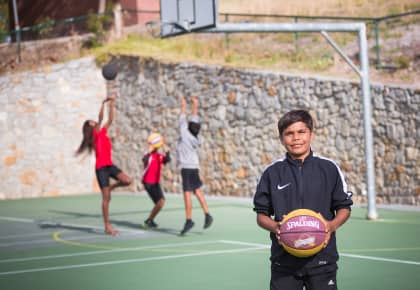Bullying
Bullying
Schools take the issue of bullying seriously, taking an active role in ensuring schools are educated in keeping students and staff safe.
Every school is expected to have a safe, supportive, respectful and positive learning environment free from bullying, harassment, discrimination and violence, so student wellbeing and academic outcomes are maximised.
Bullying can have a lasting impact on everyone involved, including those who witness it, so it is important to work together to create safe school communities for everyone.
Schools, parents and children can access a range of resources through the national Bullying. No Way! website.
They can also find legal advice for parents about sexting, image-based abuse, filming young people fighting, and cyberbullying from Legal Aid.
Preventing bullying involves everyone talking together openly and respectfully.
- Understanding bullying
- Signs of bullying
- Supporting your child
- Working with your school
- More information
- Bullying is an ongoing and deliberate misuse of power in relationships that is used to cause physical, social and/or psychological harm.
- Bullying behaviour is repeated.
- It can be verbal, physical and/or social behaviour.
- It can involve an individual or a group misusing their power over someone who feel unable to stop it from happening.
- Bullying can happen in person or online.
- It can be obvious or hidden.
- A single incident, conflict or fights between equals is not bullying.
Sometimes children who are bullied are reluctant to discuss this issue with parents, carers or teachers. They are concerned that ‘telling’ will make matters worse.
You might notice your child:
- does not want to go to school or participate in school activities
- changes their method or route to school or is frightened of walking to school
- does not do as well in assignments or tests
- changes their sleep patterns
- changes their eating patterns
- has frequent tears, anger and/or mood swings
- takes money from home
- has unexplained bruises, cuts and/or scratches
- loses or brings home damaged belongings or clothes
- arrives home hungry.
If your child is being bullied online, they may also exhibit other signs. These may include:
- being hesitant about going online
- seeming nervous when an instant message, text message or email appears
- being visibly upset after using the computer or mobile phone
- suddenly avoiding their phone
- closing the screen, or hiding the mobile phone when others enter the room
- spending unusually long hours online
- receiving suspicious phone calls, emails or packages.
There are ways you can support your child if they are being bullied.
- Listen calmly and get the full story.
- Let them know it is not their fault.
- Ask them how they want to deal with the bullying. Encourage them to seek help from their teacher.
- Talk about strategies for dealing with the bullying. Practising at home can be useful.
- Focus on solutions and stay positive.
- Ask them what they want you to do.
- Tell them you will report the bullying if it does not stop after they have tried to deal with it.
- Speak with their teacher if they are not safe at school.
- Check in regularly with them.
Visit the Bullying No Way! website for more ideas.
Bullying is considered a serious matter in schools. Every school has an anti-bullying plan and steps in place to deal with all forms of bullying.
Some of the strategies your school may use include:
- teaching students what to do when they see or experience bullying
- developing students’ communication, social, assertiveness and coping skills
- changing the school environment to improve teacher supervision
- increasing supervision of students at particular times or places
- support from a school psychologist or other member of staff
- changing access to technology
- temporary or permanent timetable or class changes to decrease students’ contact
- promoting positive bystander behaviour
- disciplinary action against students who bully others.
Speaking with your child’s teacher or another trusted member of staff is a positive step towards stopping any bullying that your child may experience. You can discuss your child’s situation and develop a plan to stop the behaviour and support your child. Strategies for use at home may also be included in the plan.
At a meeting, you can:
- request an interpreter to be present if English is your second language
- have an Aboriginal and Torres Strait Islander Education Officers or Aboriginal Liaison Officers present if your child is Aboriginal
- have a friend or adviser present during any discussion.
To request these services, please speak to your school or education regional office.
Bullying - www.bullyingnoway.gov.au
Cyberbullying – www.esafety.gov.au
Support – www.kidshelpline.com.au
Kids Helpline, 1800 55 1800, is available anytime for your child to speak with an experienced counsellor about how they are feeling.
Legal advice (online) - www.resources.legalaid.wa.gov.au/project/r-u-legal





